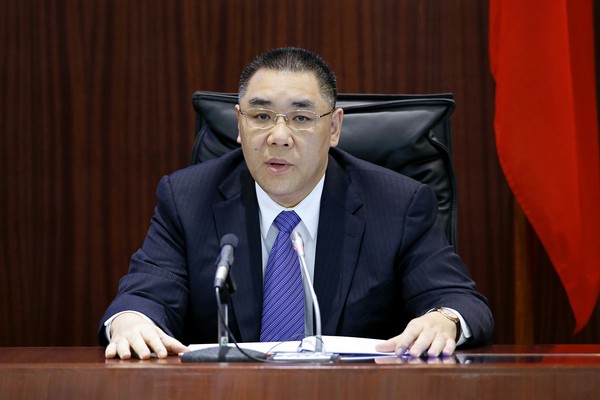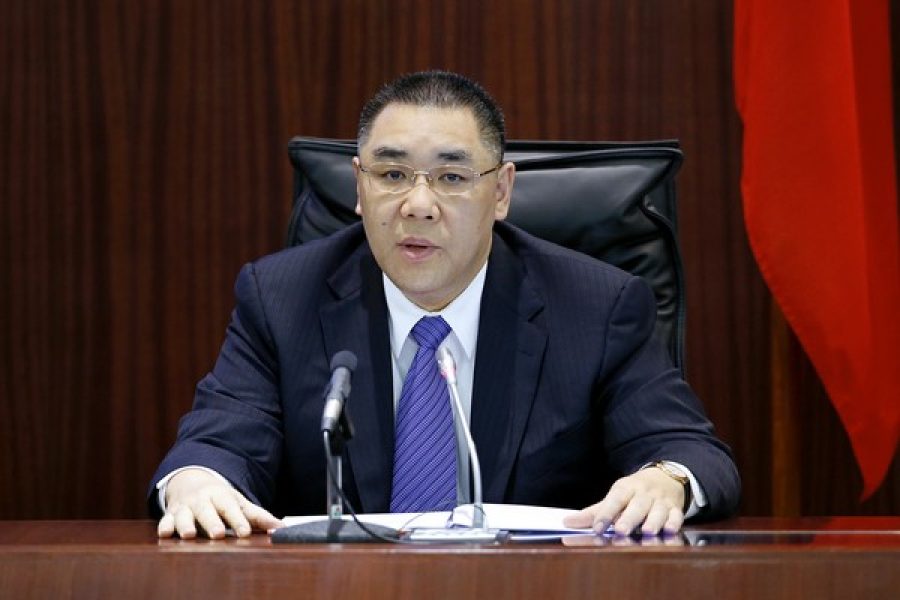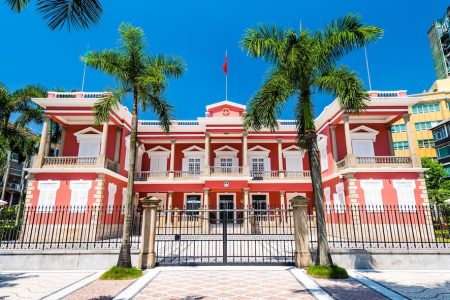Chief Executive Dr. Fernando Chui Sai On pledged on Monday that he will do his best to make Macau a liveable city as part of the government’s aim of turning the city into a global tourism and leisure hub.
Chui pointed out that the government will soon submit a report to the central government about Macau’s capability of coping with the influx of tourists. Chui also suggested it is high time to attract more tourists from overseas.
He also said the government would set up a committee to work on a five-year plan to turn Macau into a world tourism and leisure centre, adding that the government also plans to set up an investment development fund and a budget surplus allocation framework.
Chui acknowledged the important role the mainland’s Individual Visitor Scheme (IVS) has played in revitalising Macau’s tourism industry and economy, especially after the outbreak of SARS in 2003 when the scheme was set up by the central government to help Macau and Hong Kong overcome economic difficulties.
“It has been 11 years [since the scheme began] and we are in the 12th year. For a policy that has been implemented for 12 years, it is normal that there are problems with it [so] we should review this policy,” he said, noting that Macau’s population is about 630,000 and that it is expected to rise to 710,000 by 2020. The city’s land area amounts to just about 30 square kilometres.
Chui noted that tourists from the mainland, Hong Kong and Taiwan account for about 90 percent of all visitors. He said it was impossible to stop a specific group of tourists from coming to Macau as the city strives to become a world tourism and leisure centre, adding he hopes that the IVS will be improved in a way that benefits both locals and mainland tourists. Chui also suggested that the government should look to overseas to attract a more diverse source of visitors.
The central government has indicated that the IVS will be amended soon, based on the local government’s tourism carrying capacity report.
Regarding the five-year plan, Chui said it would address issues about the city’s liveability and leisure and tourism activities, adding that he himself will head the committee. He was quick to add that a thorough plan about Macau’s population policy needed to be in place before anything else could be decided.
Reporters also asked Chui about the upcoming mid-term review of the city’s six gaming concessions. Chui said he would like to see a balance between gaming and non-gaming elements in the new resorts in Cotai. Commenting on Macau’s economy and the gaming industry, he said that while the revenues generated through junket operations was down, there had been an increase in the mass gaming floor revenues.
Chui said Macau could expect average gross monthly gaming receipts of 20 billion patacas this year, down by 27 percent from an earlier estimate of 27.5 billion patacas.
The chief executive said that Macau had entered an “adjustment” period of slower economic growth and needed to develop a broader range of attractions to draw visitors from around the world.
“Even though the economy has faced major difficulties and challenges, the overall fundamentals of the economy are good,” Chui told the legislature. He added: “The pace of the economic growth has slowed, prompting us to accelerate economic diversification.”
Chui also said his government planned to improve Macau’s airport facilities and expand airline services.
Chui insisted that the government should not “over-regulate” the gaming industry, pointing out that the government has a good relationship with the six rival gaming operators. He added that in spite of the decrease in gaming revenues since last summer, he remained “cautiously optimistic” about Macau’s economy.
He said that “appropriate diversification” was Macau’s overall economic trend.
As examples of “appropriate diversification”, Chui mentioned the MICE (meetings, incentives, conferences and exhibitions) sector and the cultural and creative industries, as well as traditional Chinese medicine (TCM) businesses.
He also promised to help small- and medium-sized enterprises (SMEs) expand and offer them a better business environment.
Chui said that housing, transportation and environmental protection would remain the top priorities of his government. He also said that public security was an important condition for a liveable city, apart from ensuring food safety. “We will pay close attention to all aspects of our citizens’ safety,” Chui said.
Chu also said “the government attaches great importance to the balance of urban development and heritage conservation.”
Chui also said the government’s total financial reserves stood at 432.4 billion patacas. He admitted that the government needed to carefully manage its huge assets, thus the government had decided to set up an investment development fund. He added that Secretary for Economy and Finance Lionel Leong Vai Tac will release more information about the fund in the near future.
Chui also said that the government’s wealth-sharing handouts would continue this year. While permanent residents will receive 9,000 patacas, non-residents will receive 5,400 patacas, unchanged from last year. (macaunews/macaupost)






